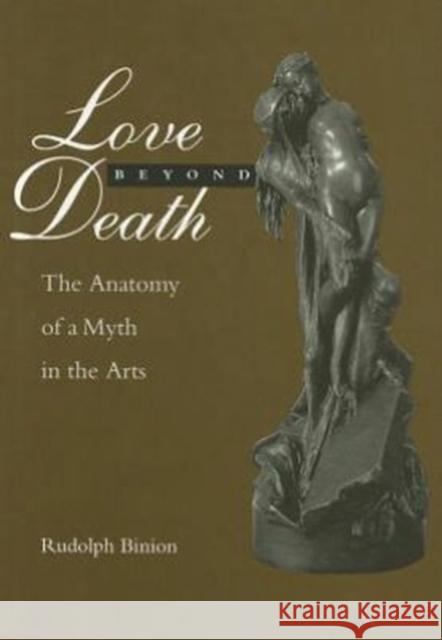Love Beyond Death: The Anatomy of a Myth in the Arts » książka
Love Beyond Death: The Anatomy of a Myth in the Arts
ISBN-13: 9780814711897 / Angielski / Twarda / 1993 / 184 str.
This richly illustrated volume explores the eroticization of death in the literature, art, and music of the nineteenth century, and in the popular culture of our time. Death was the natural enemy of love in the arts of the West until the late eighteenth century, when the two mated in artistic fancy to celebrate death as a font of sensual bliss. Through the nineteenth century, voluptuous visions of death pervaded high culture. Keats fell half in love with easeful death, and, as Heine told it, Life only warms in death's cold arms. For Whitman, death was the word of the sweetest song. Flaubert tempted his Saint Anthony with Lust and Death fused into a single figure. Zola saw love and death intermixed in the somber pit of the human soul. At mid- century, painters and poets alike competed in depicting Ophelia drowning in ecstasy. At the century's end the figure of the femme fatale haunted the cultural elite. After 1914, the entire morbid complex sank into popular culture. What was the source of this eroticization of death in the arts? To answer this question, Rudolph Binion explores a rich variety of prose and poetry, painting and sculpture, and lyrical and instrumental music, interlacing love and death. He compares modern and premodern treatments of key subjects such as Salome and Mary Magdalene, supporting his text with an array of arresting illustrations. In conclusion, he traces this fantasy of carnal love beyond death to the Christian message of spiritual love beyond death, which modern, post- Christian culture has both discarded and salvaged. In Love Beyond Death: The Anatomy of a Myth in the Arts, Rudolph Binion investigates the various art forms where the conjunction of love and death is found and provides an explanation for this bizarre match. Supporting his text with some of the most sinister, alluring, and provocative images from the nineteenth century, Binion provides the reader with a dizzying account of the development of this artistic obsession, and of its passage into the popular culture of the twentieth century.











